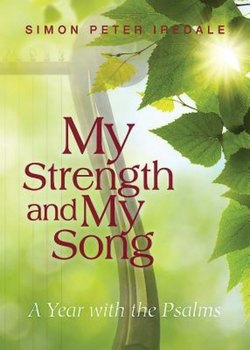Читать книгу My Strength and My Song - Simon Peter Iredale - Страница 15
На сайте Литреса книга снята с продажи.
ОглавлениеPsalm 19
We find the very ancient idea in writers as diverse as the Chinese philosopher Confucius (551–479 B.C.) and the Greek Stoic philosophers of the third century B.C. that the universe presents to us a divine order and harmony. The human being, as part of that divine order, is like a little world in a larger world; but, because of our free will, the challenge of being human is to tackle the disorder and disharmony of our own beings and to attempt to tune in ourselves more and more to the harmony that surrounds us and is presented to us every day.
This is the idea expressed so beautifully in the opening verses of Psalm 19. To the eye of faith, the created world is brimming with the knowledge of God. This is done, however, silently (verse 3). What further eloquence is needed when one’s breath is taken away by the beauty of the natural world or the extraordinary complexity of living things?
Yet, in verse 4 we hear how the “voice” and the “words” of the divine creativity permeate everything. The image that the psalmist uses to convey this notion of the all-penetrating influence of the divine is that of the sun (verses 4b-6): “there is nothing hid from its heat” (verse 6). There is an important thing to understand about the Hebrew conception of God’s Word. It is not just something that we can read or hear; it is God present to creation in infinite power. Hence, it is quite appropriate that John speaks of Christ as the “Word” of God (John 1:1). In this context we are thinking of the creative powers of God extending through all creation, setting the planets in motion, causing the flower to open, the seed to burst.
But here’s the problem—or, perhaps more positively, the challenge. Human beings have free will, which God seems to cherish in us above all things. We are not trees, mountains, or flowers that perfectly fulfill God’s purpose for them simply by existing. We can choose to be disharmonious all our lives if we would like to, even if it means we cause distress to ourselves and to others wherever we go. Another, more theological, word for this disharmony is sin. Or, we can ceaselessly try to “live according to nature” as the Stoics said, becoming more and more, by daily repeated acts of free will, the people we were created to be.
Our psalm is very aware of the responsibilities facing each “little world” of the human being, but God has not left us helpless to try and work out such an awe-inspiring thing for ourselves. Verses 7-9, with their balanced ideas of God’s provision and our benefit, show us a way forward. Here we see how God’s laws and precepts revive and rejoice the heart and make “wise the simple.” What is also interesting is how we are to understand that the commandments of God enlighten the eyes (verse 8). Perception, spiritual perception that is, or discernment, is a very valuable gift to any Christian. What is being referred to here is having, in Christian terms, not only the mind of Christ (1 Corinthians 2:16) but also the “eyes” of Christ. Remember what Jesus teaches in Matthew 6:22-23: “The eye is the lamp of the body. So, if your eye is sound, your whole body will be full of light; but if your eye is not sound, your whole body will be full of darkness. If then the light in you is darkness, how great is the darkness!” The value of these “way markers” God gives to guide us through the wilderness of the world is incalculable (verse 10).
Typical of the psalmist, after setting out the wonders of God’s creation and God’s power and benevolence toward human beings, he is then painfully aware of the fragility of his own nature (verses 11-13). There is a great deal of psychological realism here. The psalmist is aware not only of the “presumptuous sins” that seek to have dominion over him but also of the secret and hidden faults of which he may only be dimly aware. Nevertheless, it is God who commands us, mercifully and gracefully, to approach, so we can take heart that even our least efforts will be repaid in God’s love a thousand times. The psalm ends with the picture of the redeemed human being. Now, it is the human “word” that is “acceptable” to God; heaven and earth are conjoined in harmony.
For Reflection
What prevents you being in harmony with God?
Prayer
Heavenly Lord, give me clear eyes to discern the glories of your world and grace to grow in holiness. Amen.
